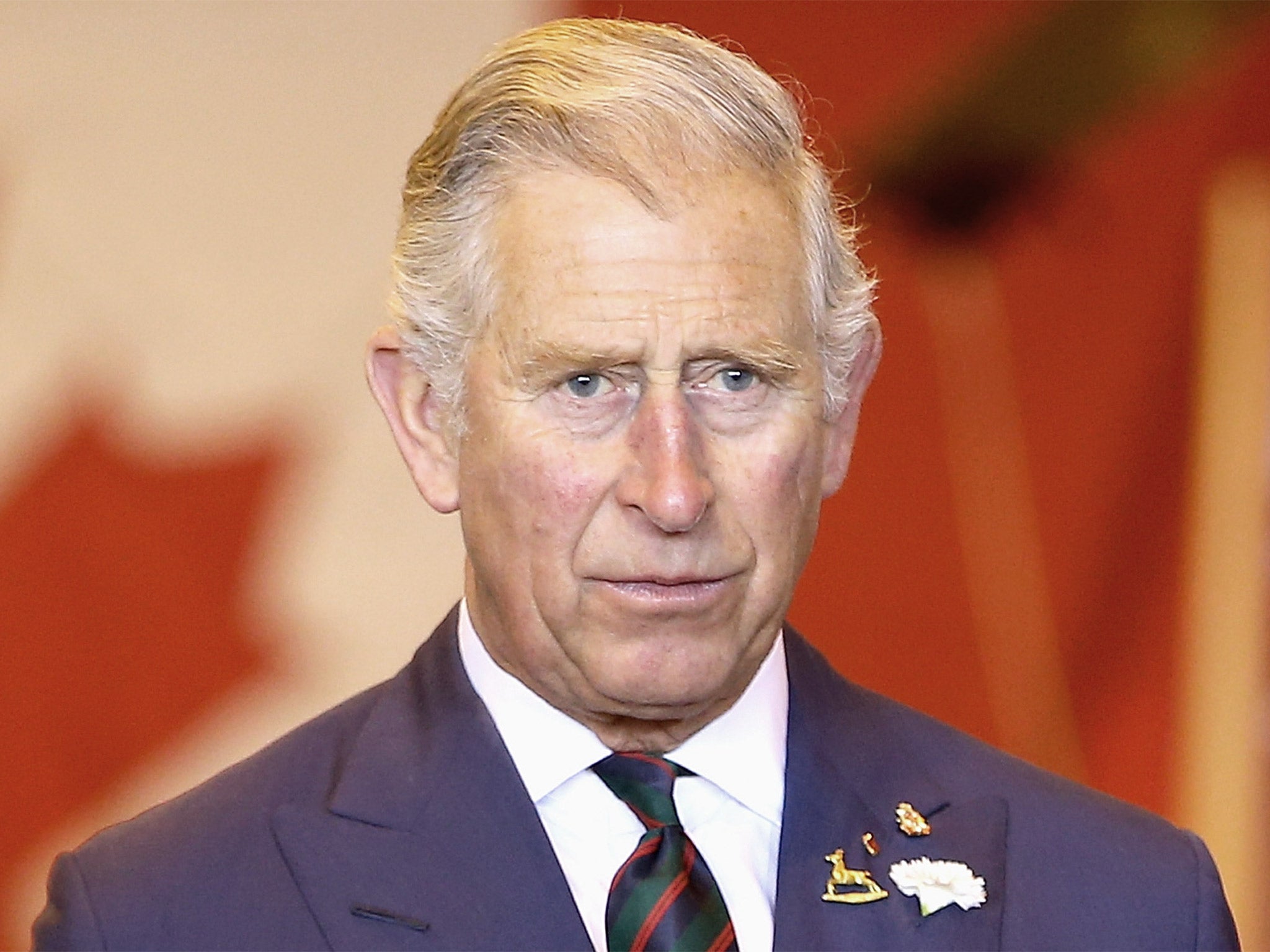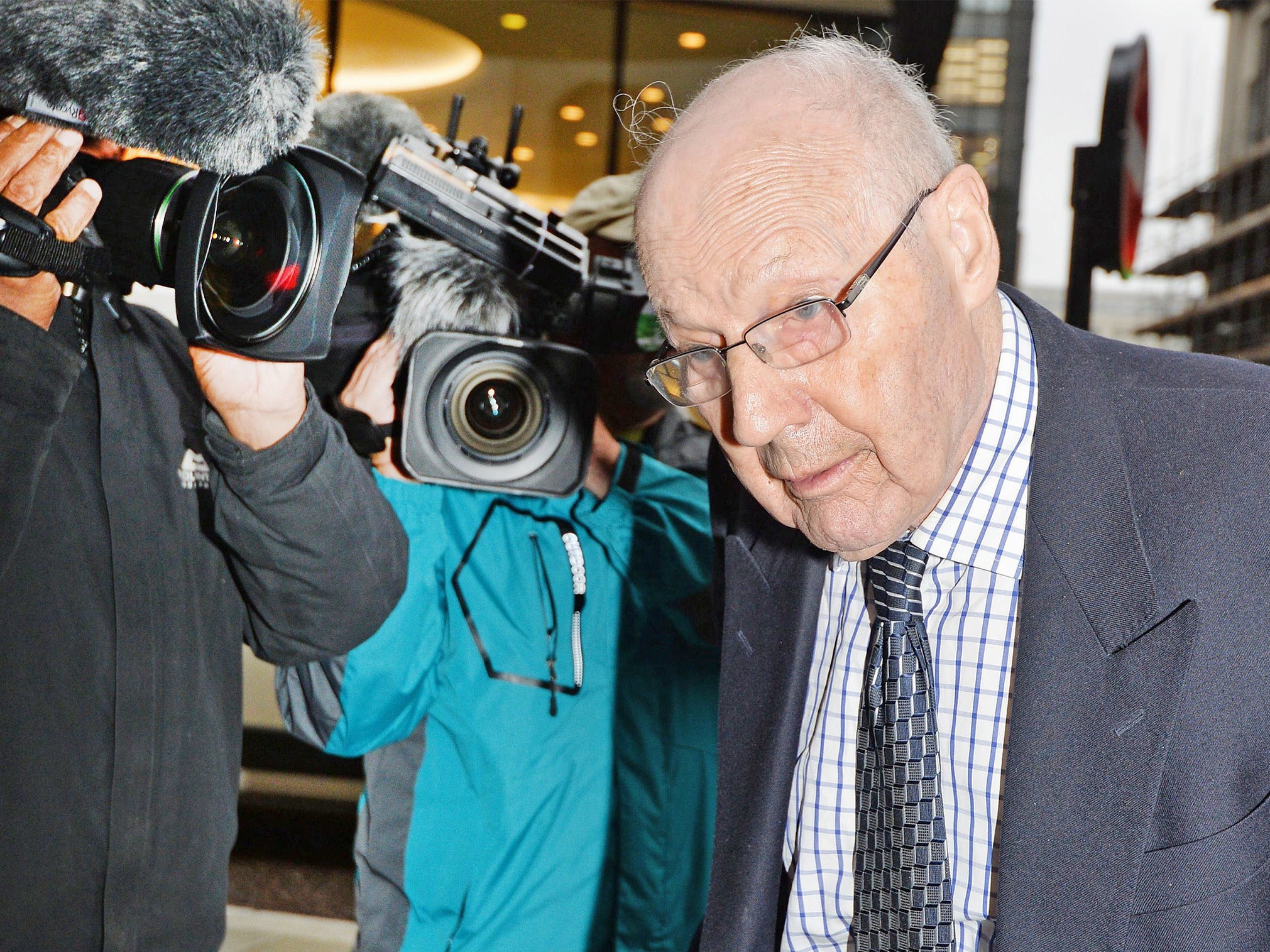Prince Charles denies trying to help sex crimes bishop escape jail
Unnamed member of the Royal Family sent a letter of support for Peter Ball as prosecutors considered putting him on trial

Prince Charles has denied using his influence to protect a bishop from a sex crimes prosecution in the 1990s during a concerted Establishment effort to defend the cleric’s reputation.
An unnamed member of the Royal Family sent a letter of support for Peter Ball, the former Bishop of Gloucester and one-time acquaintance of the Prince, as prosecutors considered putting him on trial for abusing aspiring priests, the Old Bailey was told.
Ball, 83, has finally been jailed for 32 months for abusing 18 young men over 15 years as his victims accused the criminal justice system of a cover-up to avoid a major Church scandal.

Prosecutors had considered charging him with some of the offences in 1993 but Ball avoided a trial by accepting a caution for the abuse of one young man and resigned his post as Bishop of Gloucester.
The court heard that police documents in the 1990s revealed they received telephone calls of support for the disgraced bishop from dozens of people, including MPs, former public school headmasters, magistrates and a judge. In addition, his defence team claimed to have more than “two thousand letters of support… including letters from cabinet ministers and Royal Family,” said prosecutor Bobbie Cheema-Grubb QC at the Old Bailey. She added that they might not have known of the full facts of the case.
The member of the Royal Family was not named in court. Ball has previously spoken of the heir to the throne as a “loyal friend” who had been “wonderfully kind” and allowed him to have a house owned by the Duchy of Cornwall after his resignation. He is no longer a Duchy tenant.
The Prince’s spokeswoman declined to comment on whether a letter had been sent. “The Prince of Wales made no intervention in the judicial process on behalf of Peter Ball,” said Clarence House in a statement.
The court was told that Bishop of Lewes, Ball, 83, hand-picked 18 vulnerable victims to commit acts of “debasement” in the name of religion, such as praying naked at the altar and encouraging them to submit to beatings.
Despite a number of complaints, Ball, who went on to become Bishop of Gloucester, was never charged and even continued to work as a priest in Truro after he accepted the caution in 1993.
Lord Carey, the former Archbishop of Canterbury, denied presiding over a cover-up but said that he regretted failing to deal properly with Ball’s victims and gave too much credence to his protestations of innocence.
“Allegations by some that my actions amounted to a cover-up or collusion with the abuser are wrong. I have always insisted upon the highest standards of holiness of life from all who are ordained,” he said in a statement.
Ball had attempted to get the case thrown out earlier this year because he had been assured in 1993 that there would be no future action.
Richard Scorer, a lawyer who represents a number of Ball’s victims, said the belated jailing of Ball was little comfort to his victims. “The way in which senior clergy and Establishment figures – including MPs, Cabinet ministers and members of the Royal Family – closed ranks around him has only compounded his victims’ anguish.”